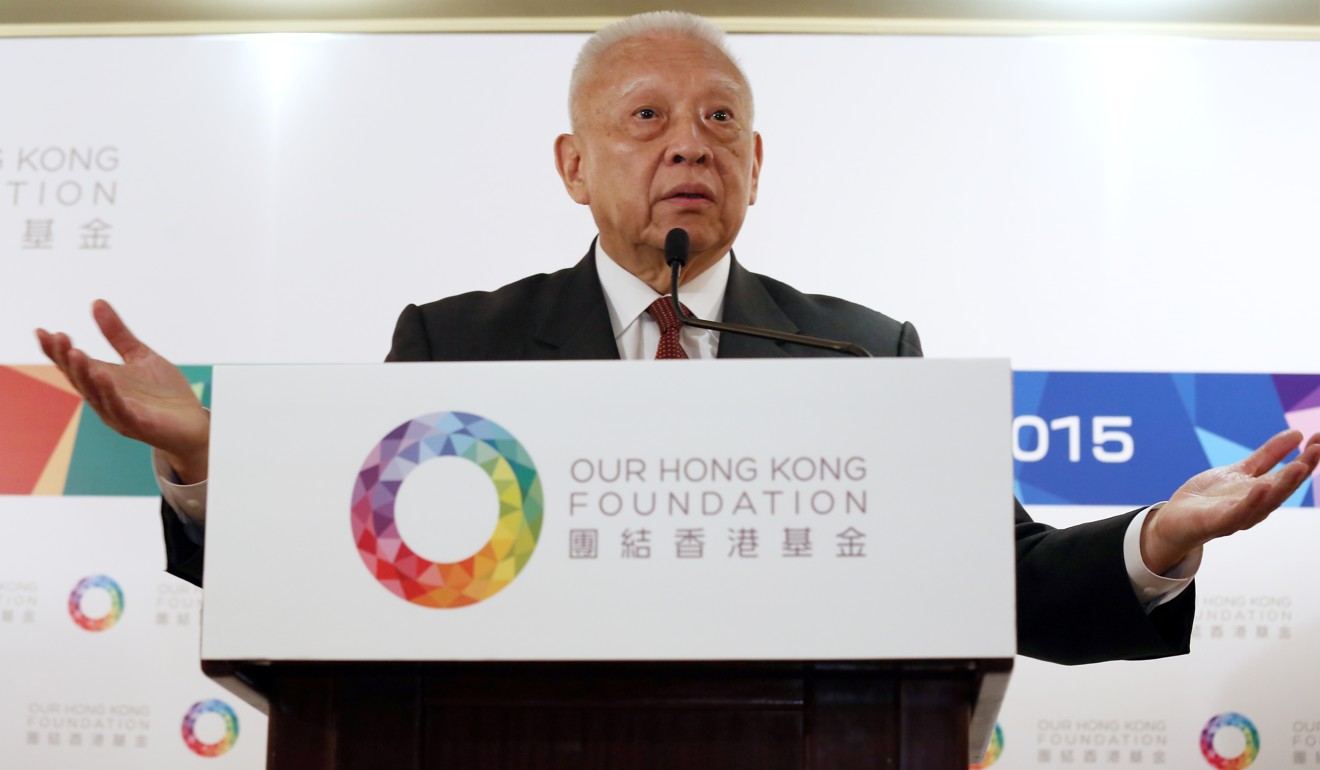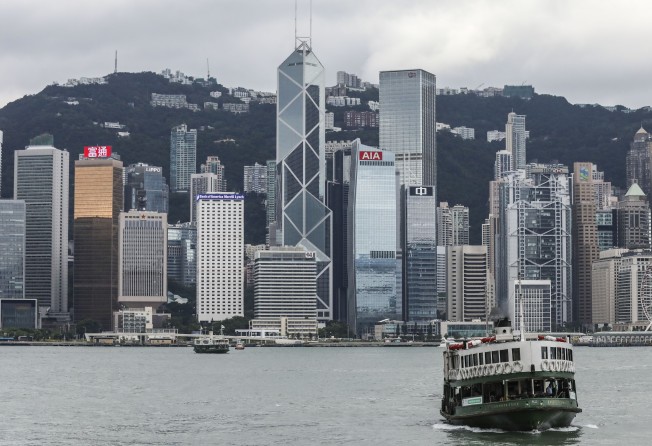
Hong Kong think tank slams omission of green finance in government’s climate strategy, calls for stronger environmental impact reporting of listed companies
- Our Hong Kong Foundation slams failure to include green finance measures in public engagement drive that will draft city’s climate action plan for 2050
- Investors need to be informed about climate change-related risks when making their business decisions, says think tank researcher

A leading think tank in Hong Kong has slammed the omission of green finance initiatives in the government’s long-term climate strategy consultation and called for strengthening of environmental impact reporting of listed companies in the international financial centre.
The three-month public engagement exercise, announced by the Environment Bureau’s Council for Sustainable Development in June, is now under way. It will draft the city’s climate action plan for 2050 to fulfil Hong Kong’s obligations under the Paris Agreement, which aims to keep the rise of global average temperature this century within 2 degrees Celsius.
But Our Hong Kong Foundation, a local think tank which published a report in May recommending stronger environmental reporting mechanisms for the city’s listed companies, criticised the council’s failure to include specific references and questions on green finance measures in the consultation document and said it was a “missed opportunity”.
“Companies have a vital role to play in combating climate change. The government should think carefully about how to leverage the financial sector to improve their environmental performance and standards,” said Johnson Kong Chun-san, assistant researcher at the think tank involved in its May’s report.
“Hong Kong is a global financial hub and listed companies make a huge contribution to the city’s economy.”

The Hong Kong stock exchange has required listed companies to submit an environmental, social and governance (ESG) report every year since 2016, in a bid to increase accountability and transparency of the environmental practices and impacts, including on climate change, of big businesses.
It has announced a consultation of its ESG rule book in May, which is due to complete next Friday, a day after Our Hong Kong Foundation’s report revealed the “box-ticking” nature of many current ESG reports.
According to a publication by environmental group Friends of the Earth (HK) in May, local fast food chain Fairwood, for example, disclosed in its 2017/18 ESG report its use of natural gas in its business operations, but failed to mention nitrogen oxides and sulphur dioxide – the indirect greenhouse gases created by the use of those natural gases. The report also failed to mention the amount of single-use plastic wrap and packaging involved in its takeaway service.
The Post has reached Fairwood for comment.
Kong said the box-ticking exercise rendered the reporting mechanism unfit for purpose, and local authorities had to make substantial improvements to the way listed companies were required to report on their ESG commitments.
“With better ESG reporting mechanisms, investors and the public will have access to more comprehensive and detailed information on how well the listed companies are doing in mitigating environmental risks, and companies will also be incentivised to change their behaviour and make a valuable contribution to protecting the environment,” Kong said.
“Earlier this year, we saw the world’s first bankruptcy caused by climate change, when Pacific Gas and Electric in California neglected environmental risks and failed to prevent the sparks from its electric wires from causing a massive fire. In Hong Kong, we also see stronger typhoons – such as Mangkhut laying waste to facilities in the city. That’s why investors need to be informed about climate change-related risks when making their business decisions.”
Among its policy recommendations, Our Hong Kong Foundation urged the Hong Kong stock exchange to impose the responsibility to assess and oversee ESG risks on the board of directors of listed companies by making specific references to it in the Corporate Governance Code, the regulator’s guideline that defines the board’s role and responsibilities.
The think tank also called on the financial authority to issue industry-specific guidelines to companies, to ensure they disclosed all relevant facts and statistics and avoided the problem of box-ticking.
“Policymakers in Hong Kong can take a proactive role in being a facilitator, and not just a regulator, by helping especially small and medium-sized listed companies identify the most important ESG issues and risks to ensure the ESG reporting mechanism works better for companies and investors alike, making Hong Kong a truly global green financial hub,” Kong said.
A spokesman for the Council for Sustainable Development said its consultation document was designed to be “succinct yet comprehensive”, but not “exhaustive”.
“The message of the document is clear that different kinds of climate action by all sectors of the community are needed to decarbonise Hong Kong,” he said.